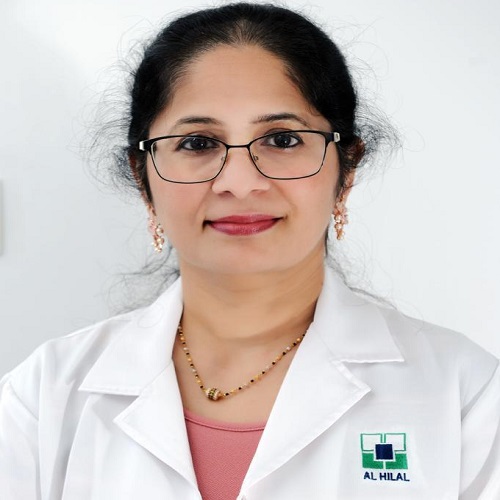When a pregnancy spontaneously terminates within the first 20 weeks, it is known as a miscarriage, which is a terrible occurrence. While it can be emotionally upsetting, it’s crucial to keep in mind that many women go on to have successful pregnancies after experiencing it. It affects between 10% and 20% of pregnancies. In this article, we shall examine all facets of miscarriages, including their causes, symptoms, available treatments, and available preventative measures.
1. The causes of miscarriage:
Miscarriages can result from a number of causes, such as:
a) Chromosomal Abnormalities: In the fetus, chromosomal abnormalities are the most frequent cause of miscarriage. These anomalies appear at random and are often unrelated to the mother’s wellbeing or way of life.
b) Hormonal Imbalances: Hormonal imbalances, particularly those involving progesterone and estrogen, might obstruct the implantation and growth of the embryo, which can result in a miscarriage.
c) Chronic Medical Conditions: Polycystic ovary syndrome (PCOS), thyroid disorders, autoimmune diseases, and diabetes are among the chronic medical conditions that can raise the chance of miscarriage.
d) Lifestyle Factors: Factors like smoking, binge drinking, drug use, and exposure to chemicals in the environment can raise the chance of miscarriage.
2. Potential Miscarriage Causes in the First 8 Weeks:
There are a number of variables that can raise the risk of miscarriage during the first eight weeks of pregnancy, including:
a) The majority of early miscarriages are brought on by genetic defects in the growing embryo.
b) Infection: Some diseases, including listeria, rubella, and some STIs, might raise the chance of miscarriage in the first few weeks of pregnancy.
c) Hormonal Imbalances: Imbalances in hormone levels have the potential to upset the delicate hormonal balance required to support early pregnancy.
d) Uterine Abnormalities: Fibroids and polyps are examples of structural abnormalities in the uterus that might obstruct implantation and raise the chance of miscarriage.
3. Two-week early miscarriage symptoms:
Understanding the warning signals of an early miscarriage is important. Although symptoms can differ, typical indications of an early miscarriage include:
a) Vaginal Bleeding: Vaginal bleeding that ranges from light to heavy and may be accompanied by cramping and pain in the abdomen
b) Passing Tissue: Expelling tissue or blood clots from the vagina
c) Lower back pain that is comparable to menstruation cramps
d) Reduced Pregnancy Symptoms: A sudden decrease or removal of pregnancy symptoms like morning sickness or sore breasts
Seek Medical Help: If you’ve noticed any of the above symptoms, immediately book a consultation with one of our medical professionals to go over your specific risk factors and get tailored advice.
4. Confirmation of a Miscarriage
It is crucial to seek medical guidance for confirmation if you think you may be experiencing a miscarriage. The following tests could be carried out by your healthcare provider:
a) A pregnancy can be confirmed as viable or as having ended in miscarriage via an ultrasound.
b) Blood tests can detect the levels of pregnancy hormones (hCG) to determine whether they are declining or disappearing altogether, which would indicate a miscarriage.
c) Physical Exam: A cervix and uterus physical examination can reveal further information.
5. Treatment and Care After Miscarriage:
The gestational age and the presence of any problems are two elements that affect the proper miscarriage treatment. Treatment choices could be:
a) Expectant Management: The body may spontaneously evacuate the pregnancy tissue in cases of early miscarriage where there are no problems or indications of infection. Throughout this process, close supervision by a healthcare professional is crucial.
b) Prescription drugs: In some circumstances, prescription drugs may be administered to aid in the body’s removal of pregnancy tissue or to stave off infection.
c) Surgical Procedures: A surgical operation, such as a dilation and curettage (D&C) or vacuum aspiration, may be required to remove the residual tissue if the miscarriage is complete or there are signs of infection.
Call us to get advice from our expert gynecologists at Al Hilal Hospitals.
6. Miscarriage Risk Factors:
Despite the fact that miscarriages can happen without any particular risk factors, various factors, such as:
a) Advanced Maternal Age: As a woman ages, her chance of miscarriage gradually rises, especially after the age of 35.
b) Previous Miscarriages: Women who have already experienced one or more miscarriages are slightly more likely to do so again.
c) Chronic Health disorders: Miscarriage risk can be raised by some chronic health disorders, including diabetes, hypertension, and autoimmune diseases.
d) Lifestyle Factors: Environmental pollutants, excessive alcohol intake, smoking, and drug use can all raise the chance of miscarriage.
7. Preventing Miscarriage:
There are steps you can take to lower the risk of miscarriage, even if it is not always feasible to prevent one:
a) Maintaining a healthy lifestyle can help reduce the risk. This includes eating a balanced diet, getting regular exercise, and abstaining from dangerous behaviors like smoking and binge drinking.
b) Managing Chronic Conditions: If you are pregnant, work closely with your healthcare provider to manage any chronic medical conditions you may have.
c) Prenatal Care: Early and consistent prenatal care is essential for keeping track of your pregnancy’s development and spotting any hazards.
d) hereditary counseling: If you or your family have a history of recurrent miscarriages or hereditary diseases, genetic counseling can offer insightful advice.
Women and couples contemplating pregnancies must be aware of the reasons, symptoms, available treatments, and preventive actions associated with miscarriages. While miscarriages can be emotionally upsetting, many women go on to have healthy pregnancies with the right support, care, and medical attention.
Throughout your pregnancy, don’t forget to seek the individualized advice and support of healthcare professionals. Book a consultation with our expert Gynecologist at Al Hilal Hospitals for tailored advice and a healthy and happy pregnancy ahead.


